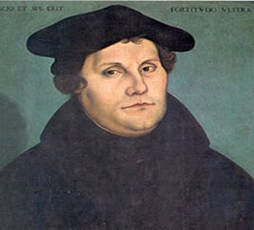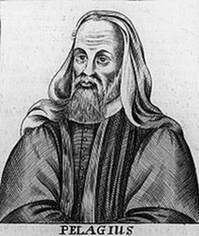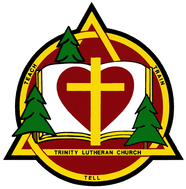
Let’s be clear: Reformation is not a time for denominational dissing or for misplaced pride in Lutheran heritage/history. I mean, take a real good look at what passes for much of Lutheranism today. There’s quite a bit of “Lutheran in name only.” Reformation isn’t about Martin Luther or Lutherans. It’s about God’s grace, how God restored the truth of his pure Gospel to the Christian church after it had long been obscured by the church of the Middle Ages. Simply put, Reformation is about Jesus. It’s always about Jesus and his truth, truth that grants us spiritual freedom.
In John 8, we find yet another testy exchange between Jesus and the Jews, a verbal showdown between law or Gospel, works or grace, as the way to heaven. To the Jews who had believed him, Jesus said, “If you remain in my word, you are really my disciples. You will also know the truth, and the truth will set you free.” (John 8:31,32 EHV)
The response? Pride in their pedigree. Huffing about their heritage. “Wait just a minute – have you seen our birth certificates? We’ve got the blood of Abraham flowing through our veins. We’ve never been slaves of anyone. We’re free.”
But they were not free. Because of our sinful nature, no one is free by nature and no one can get himself out of this fatal dilemma. We and all people are born slaves to sin. We don’t need pedigree. We don’t need the filthy rags of our own works. We need the Word. We need Jesus. We need grace.
It couldn’t be clearer. Jesus says, “If the Son sets you free, you really will be free indeed.” (John 8:36) Freedom! Freedom from sin, fear, guilt, death, and hell. Freedom from having to do the impossible and try to save ourselves. Freedom to know and believe that Jesus became your/my sin on the cross. Freedom to know and believe that his righteousness is credited to us as a gift through faith, which is also God’s gift. Freedom, blessed freedom to know and believe that heaven’s gates are open wide. Freedom to respond to God’s amazing work in our lives by doing what Jesus tells us to do here, to hold to his teaching.
When did reformation really begin? The most famous date (and the reason we celebrate this festival this weekend) is October 31, 1517, when Martin Luther posted the 95 Theses on the door of the Castle Church in Wittenberg, Germany.
Others prefer a different date. June 25, 1530, the day when a group of German princes presented Emperor Charles V with the Augsburg Confession, a document that defined and defended the teachings of the Lutheran church. This date is often referred to as the birthday of the Lutheran church because of the bold unity expressed that day.
If you don’t like those dates, how about 1514? That was when Luther had his so-called “tower experience,” when the Lord led him to realize that the righteousness that matters before God is not the righteousness that individuals bring to God by obeying the law. Instead, the righteousness God demands is the righteousness God himself gives through faith in Jesus Christ.
When did reformation begin? It wasn’t in 1514 or 1517 or 1530. Reformation began in the Garden of Eden, and it was the Lord himself who did the reforming. He promised restoration to Adam and Eve and he delivered. He’s been restoring and reforming ever since. Reformation continues today, October 28, 2020, right now, in your heart and life, through his Word.
The Son has set you free. You are free indeed.
To God alone be the glory,
Pastor Stephen Luchterhand




 RSS Feed
RSS Feed

